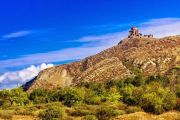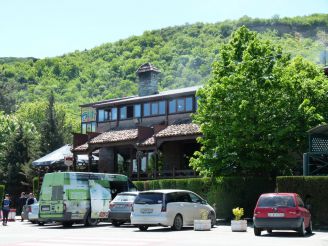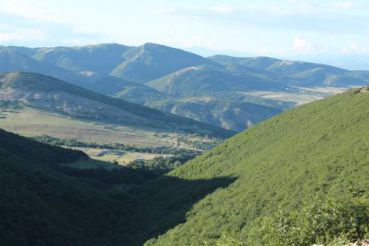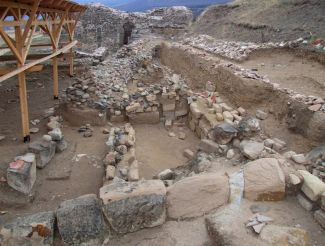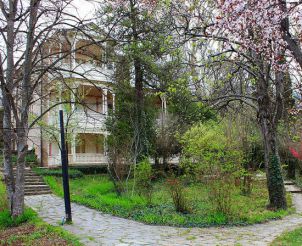Mtskheta - a real spiritual center of Georgia. The ancient town, nestled among rocky peaks, in a place where merge river Kura and Aragvi. Was founded in the second half of the 1st millennium BC. Legend has it that its founder was the king Mtsehotos.
In the Middle Ages Mtskheta is an important religious and trade and craft center. And today, thanks to the many places of worship, the ancient capital is often called the second Jerusalem . It contains the Heaton Lord - one of the most precious shrines of Christendom. In the holy city continuously follow tourists and pilgrims from many countries.
The main architectural monuments of Mtskheta is the ancient Cathedral of Mtskheta , the monastery Jvari and strength Bebristsihe. Among other iconic attractions worth emphasizing nunnery Samtavro , founded in the 11th century, as well as burial Samtavro - one of the most interesting and valuable archaeological sites in Georgia.
At 10 kilometers from Mtskheta is Shio-Mgvime monastery dating from the 6th century. So ancient structure over the centuries of its existence, literally merged with the mountain slopes, taking even their color. In the late 19th century architectural monuments of Mtskheta were made to the list of UNESCO World Heritage Sites.
You should definitely visit the Archaeological Museum of Mtskheta, next to which is Karibche - the ruins of the old gates of Mtskheta found next to the square in the center of the city. Most of Pompey, which connects the two banks of the Kura River - one of the oldest bridges in Mtskheta. Strikingly, but part of it is preserved from 65 BC, when the first bridge was built by Pompey the Great.
Mtskheta is the most popular tourist attraction in Georgia. Small but so ancient and extraordinary city impresses with its historical and cultural heritage. You can stay in a hotel, hostel or stay with locals. Mtskheta is located a few hours drive from Tbilisi. Route taxi from the capital sent from the station "Didube". The route follows by Mtskheta, the Archaeological Museum, the fortress Bebristsihe.




